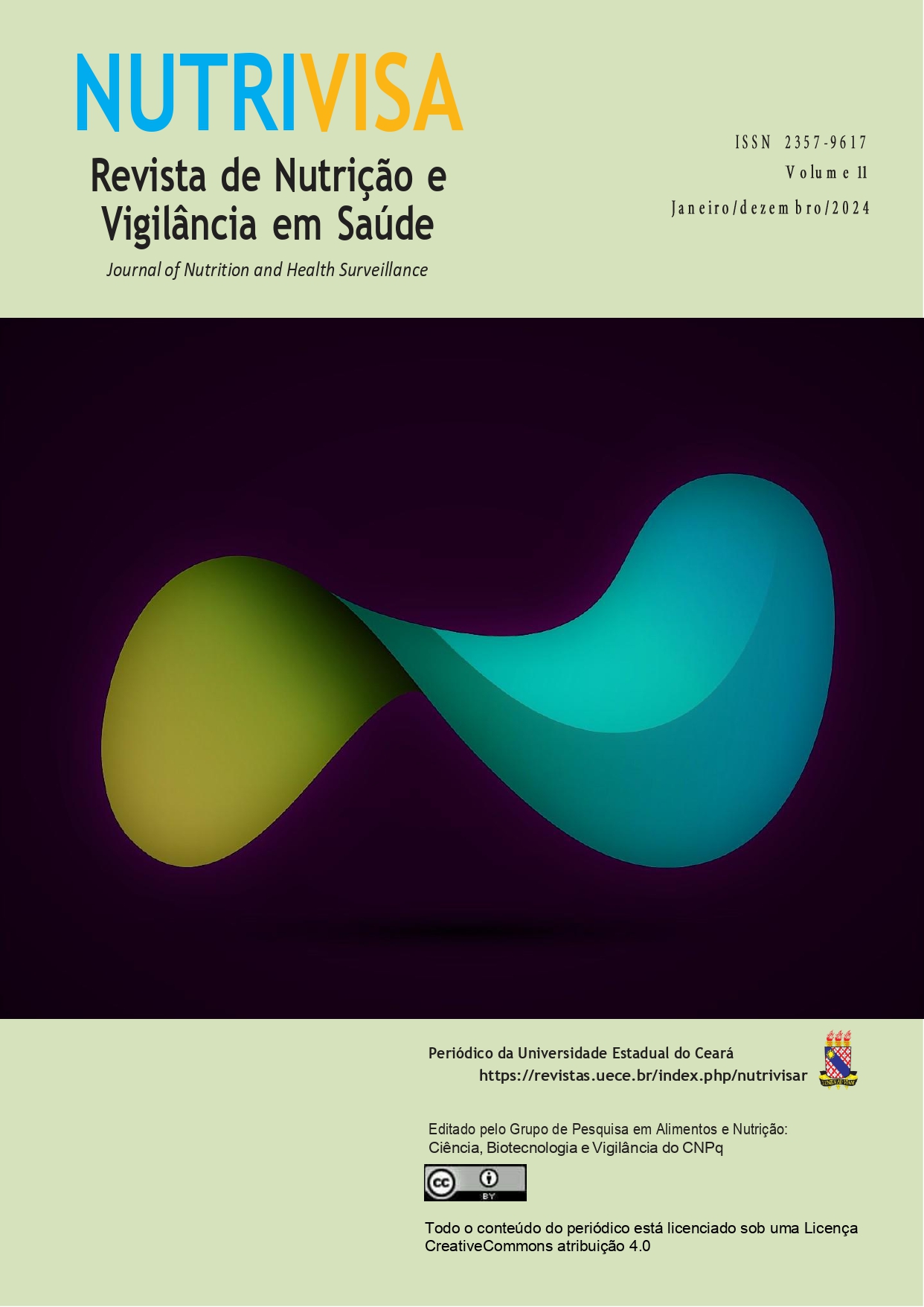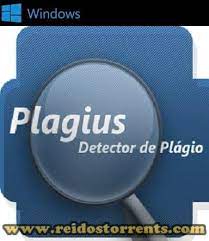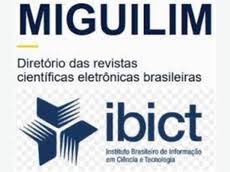Asociación entre cáncer de vejiga y patrones dietéticos saludables
DOI:
https://doi.org/10.52521/nutrivisa.v11i1.14342Palabras clave:
Neoplasias de la vejiga urinaria, Dieta cetogénica, Dieta mediterránea, Antioxidantes, Revisión de la LiteraturaResumen
Introducción: El cáncer de vejiga representa un reto de salud global y presenta la segunda mortalidad más alta entre los cánceres urológicos, tiene determinantes ambientales y de estilo de vida asociados a su ocurrencia. Por lo tanto, este estudio tiene como objetivo investigar la asociación entre patrones de alimentación saludable y cáncer de vejiga. Métodos: Se utilizó una revisión integradora a través de las bases de datos Pubmed, Medline, Embase y Scopus. Resultados: Veintitrés estudios observacionales han mostrado resultados mixtos sobre la relación entre la dieta mediterránea y el riesgo de cáncer de vejiga. Algunos encontraron una asociación inversa con frutas, verduras, carotenoides y vitaminas, mientras que otros no observaron una asociación significativa. Los estudios de casos y controles han asociado el consumo de frutas cítricas con un riesgo reducido, además de carotenoides y vitaminas C y E, disminuyendo potencialmente la probabilidad de desarrollar la enfermedad. Estos hallazgos son significativos y apuntan a la necesidad de más estudios sobre dietas mediterráneas, cetogénicas y ricas en antioxidantes en el contexto analizado. Conclusión: el estudio sugiere que la asociación entre patrones dietéticos saludables y cáncer de vejiga es compleja y aún carece de evidencia sólida y recomienda más estudios sobre la relación entre patrones dietéticos saludables y cáncer de vejiga, explorando otros aspectos de la historia natural de esa enfermedad y la integración de diferentes áreas como la metabolómica, la genética, la epidemiología y la nutrición.
Citas
AFSHARMOGHADAM, N. et al. Concentration- Dependent Effects of Curcumin on 5-Fluorouracil Efficacy in Bladder Cancer Cells. Asian Pacific journal of cancer prevention : APJCP, vol. 18, no 12, p. 3225–3230, 28 dez. 2017. https://doi.org/10.22034/APJCP.2017.18.12.3225.
BRAVI, F. et al. Mediterranean Diet and Bladder Cancer Risk in Italy. Nutrients, vol. 10, no 8, 10 ago. 2018. https://doi.org/10.3390/nu10081061.
BRINKMAN, M. T. et al. Consumption of animal products, olive oil and dietary fat and results from the Belgian case-control study on bladder cancer risk. European journal of cancer (Oxford, England : 1990), vol. 47, no 3, p. 436–42, fev. 2011. https://doi.org/10.1016/j.ejca.2010.09.027.
BRINKMAN, M. T. et al.Minerals and vitamins and the risk of bladder cancer: results from the New Hampshire Study. Cancer Causes & Control, vol. 21, no 4, p. 609–619, 31 abr. 2010. https://doi.org/10.1007/s10552-009-9490-0.
BRUEMMER, B.; WHITE, E.; VAUGHAN, T. L.; CHENEY, C. L. Nutrient Intake in Relation to Bladder Cancer among Middle-aged Men and Women. American Journal of Epidemiology, vol. 144, no 5, p. 485–495, 1 set. 1996. https://doi.org/10.1093/oxfordjournals.aje.a008955.
BRYAN, R. T. et al. Selenium and Vitamin E for Prevention of Non-Muscle-Invasive Bladder Cancer Recurrence and Progression: A Randomized Clinical Trial. JAMA network open, vol. 6, no 10, p. e2337494, 2 out. 2023. https://doi.org/10.1001/jamanetworkopen.2023.37494.
BUCKLAND, G. et al. Adherence to the Mediterranean diet and risk of bladder cancer in the EPIC cohort study. International Journal of Cancer, vol. 134, no 10, p. 2504–2511, 15 maio 2014. https://doi.org/10.1002/ijc.28573.
DEMIR, M. Oxidative Stress Has a Negative Effect on the Development and Progression of Bladder Cancer. Turkish Journal of Oncology, 2022. https://doi.org/10.5505/tjo.2022.3453.
EDEFONTI, V. et al. Association between Nutrient-Based Dietary Patterns and Bladder Cancer in Italy. Nutrients, vol. 12, no 6, 28 maio 2020. https://doi.org/10.3390/nu12061584.
EGASHIRA, R. et al. Long-Term Effects of a Ketogenic Diet for Cancer. Nutrients, vol. 15, no 10, p. 2334, 16 maio 2023. https://doi.org/10.3390/nu15102334.
GALINIAK, S. et al. Oxidative Stress Markers in Urine and Serum of Patients with Bladder Cancer. Antioxidants, vol. 12, no 2, p. 277, 26 jan. 2023. https://doi.org/10.3390/antiox12020277.
GUIJA-GUERRA, H.; GUIJA-POMA, E. Radicales libres y sistema antioxidante. Horizonte Médico (Lima), vol. 23, no 2, p. e2158, 31 mar. 2023. https://doi.org/10.24265/horizmed.2023.v23n2.12.
HABIB, H. M. et al. Grape seed proanthocyanidin extract inhibits DNA and protein damage and labile iron, enzyme, and cancer cell activities. Scientific reports, vol. 12, no 1, p. 12393, 20 jul. 2022. https://doi.org/10.1038/s41598-022-16608-2.
HAJJAR, M. et al. Adherence to Mediterranean-Style Dietary Pattern and Risk of Bladder Cancer: A Case-Control Study in Iran. Nutrition and cancer, vol. 75, no 2, p. 610–617, 2023. https://doi.org/10.1080/01635581.2022.2143536.
HOLICK, C. N. et al. Intake of fruits and vegetables, carotenoids, folate, and vitamins A, C, E and risk of bladder cancer among women (United States). Cancer causes & control : CCC, vol. 16, no 10, p. 1135–45, dez. 2005. https://doi.org/10.1007/s10552-005-0337-z.
ISLAM, M. O. et al. Alterations of Antioxidant Enzymes and Biomarkers of Nitro-oxidative Stress in Tissues of Bladder Cancer. Oxidative Medicine and Cellular Longevity, vol. 2019, p. 1–10, 5 maio 2019. https://doi.org/10.1155/2019/2730896.
JACOBS, E. J. et al. Vitamin C and vitamin E supplement use and bladder cancer mortality in a large cohort of US men and women. American journal of epidemiology, vol. 156, no 11, p. 1002–10, 1 dez. 2002. https://doi.org/10.1093/aje/kwf147.
KANG, M. et al. Diet Quality and Risk of Bladder Cancer in the Multiethnic Cohort Study. Nutrients, vol. 16, no 12, p. 1965, 20 jun. 2024. https://doi.org/10.3390/nu16121965.
KELLEN, E. et al. Fruit consumption reduces the effect of smoking on bladder cancer risk. The Belgian case control study on bladder cancer. International journal of cancer, vol. 118, no 10, p. 2572–8, 15 maio 2006. https://doi.org/10.1002/ijc.21714.
LIN, J.-J. et al. Proteomics Analysis of Tangeretin-Induced Apoptosis through Mitochondrial Dysfunction in Bladder Cancer Cells. International Journal of Molecular Sciences, vol. 20, no 5, p. 1017, 26 fev. 2019. https://doi.org/10.3390/ijms20051017.
MAZDAK, H.; GHOLAMPOUR, M.; TOLOU GHAMRI, Z. A Quick Review of Redox State in Cancer: Focus to Bladder. The Gulf journal of oncology, vol. 1, no 32, p. 59–62, jan. 2020.
MICHAUD, D. S. et al. Intakes of fruits and vegetables, carotenoids and vitamins A, E, C in relation to the risk of bladder cancer in the ATBC cohort study. British Journal of Cancer, vol. 87, no 9, p. 960–965, 21 out. 2002. https://doi.org/10.1038/sj.bjc.6600604.
MICHAUD, D. S. et al. Fruit and vegetable intake and incidence of bladder cancer in a male prospective cohort. Journal of the National Cancer Institute, vol. 91, no 7, p. 605–13, 7 abr. 1999. https://doi.org/10.1093/jnci/91.7.605.
MO, X.-C. et al Screening and identification of hub genes in bladder cancer by bioinformatics analysis and KIF11 is a potential prognostic biomarker. Oncology Letters, vol. 21, no 3, p. 205, 14 jan. 2021. https://doi.org/10.3892/ol.2021.12466.
MOMAS, I. et al. Relative importance of risk factors in bladder carcinogenesis: some new results about Mediterranean habits. Cancer causes & control : CCC, vol. 5, no 4, p. 326–32, jul. 1994. https://doi.org/10.1007/BF01804983.
NARII, N. et al. Vegetable and fruit intake and the risk of bladder cancer: Japan Public Health Center-based prospective study. British journal of cancer, vol. 126, no 11, p. 1647–1658, jun. 2022. https://doi.org/10.1038/s41416-022-01739-0.
PARK, S.-Y. et al. Fruit and vegetable intakes are associated with lower risk of bladder cancer among women in the Multiethnic Cohort Study. The Journal of nutrition, vol. 143, no 8, p. 1283–92, ago. 2013. https://doi.org/10.3945/jn.113.174920.
PELUSO, M. et al. White blood cell DNA adducts and fruit and vegetable consumption in bladder cancer. Carcinogenesis, vol. 21, no 2, p. 183–7, fev. 2000. https://doi.org/10.1093/carcin/21.2.183.
RATAAN, A. O. et al. Potential Role of Selenium in the Treatment of Cancer and Viral Infections. International Journal of Molecular Sciences, vol. 23, no 4, p. 2215, 17 fev. 2022. https://doi.org/10.3390/ijms23042215.
RIBOLI, E. et al .A. Diet and bladder cancer in Spain: a multi-centre case-control study. International journal of cancer, vol. 49, no 2, p. 214–9, 9 set. 1991. https://doi.org/10.1002/ijc.2910490212.
RÖMER, M.; DÖRFLER, J.; HUEBNER, J. The use of ketogenic diets in cancer patients: a systematic review. Clinical and experimental medicine, vol. 21, no 4, p. 501–536, nov. 2021. https://doi.org/10.1007/s10238-021-00710-2.
SCHABATH, M. B. et al. Dietary Carotenoids and Genetic Instability Modify Bladder Cancer Risk. The Journal of Nutrition, vol. 134, no 12, p. 3362–3369, dez. 2004. https://doi.org/10.1093/jn/134.12.3362.
SCHULPEN, M.; VAN DEN BRANDT, P. A. Adherence to the Mediterranean Diet and Risks of Prostate and Bladder Cancer in the Netherlands Cohort Study. Cancer Epidemiology, Biomarkers & Prevention, vol. 28, no 9, p. 1480–1488, 1 set. 2019. https://doi.org/10.1158/1055-9965.EPI-19-0224.
SHIBATA, A. et al .Intake of vegetables, fruits, beta-carotene, vitamin C and vitamin supplements and cancer incidence among the elderly: a prospective study. British journal of cancer, vol. 66, no 4, p. 673–9, out. 1992. https://doi.org/10.1038/bjc.1992.336.
WIGNER, P. et al .Oxidative stress parameters as biomarkers of bladder cancer development and progression. Scientific Reports, vol. 11, no 1, p. 15134, 23 jul. 2021. https://doi.org/10.1038/s41598-021-94729-w.
XIE, H.; CHUN, F. K.-H.; RUTZ, J.; BLAHETA, R. A. Sulforaphane Impact on Reactive Oxygen Species (ROS) in Bladder Carcinoma. International Journal of Molecular Sciences, vol. 22, no 11, p. 5938, 31 maio 2021. https://doi.org/10.3390/ijms22115938.
XU, X. et al. Association of dietary tomato intake with bladder cancer risk in a prospective cohort of 101,683 individuals with 12.5 years of follow-up. Aging, vol. 13, no 13, p. 17629–17637, 15 jul. 2021. https://doi.org/10.18632/aging.203252.
ZEEGERS, M. P. A.; GOLDBOHM, R. A.; BRANDT, P. A. van den. Are retinol, vitamin C, vitamin E, folate and carotenoids intake associated with bladder cancer risk? Results from the Netherlands Cohort Study. British Journal of Cancer, vol. 85, no 7, p. 977–983, 2 out. 2001. https://doi.org/10.1054/bjoc.2001.1968.
Descargas
Publicado
Cómo citar
Número
Sección
Licencia
Derechos de autor 2024 Djalma Ribeiro Costa, Luís Alberto de Sousa Rodrigues, Francisco Leonardo Torres-Leal

Esta obra está bajo una licencia internacional Creative Commons Atribución 4.0.













